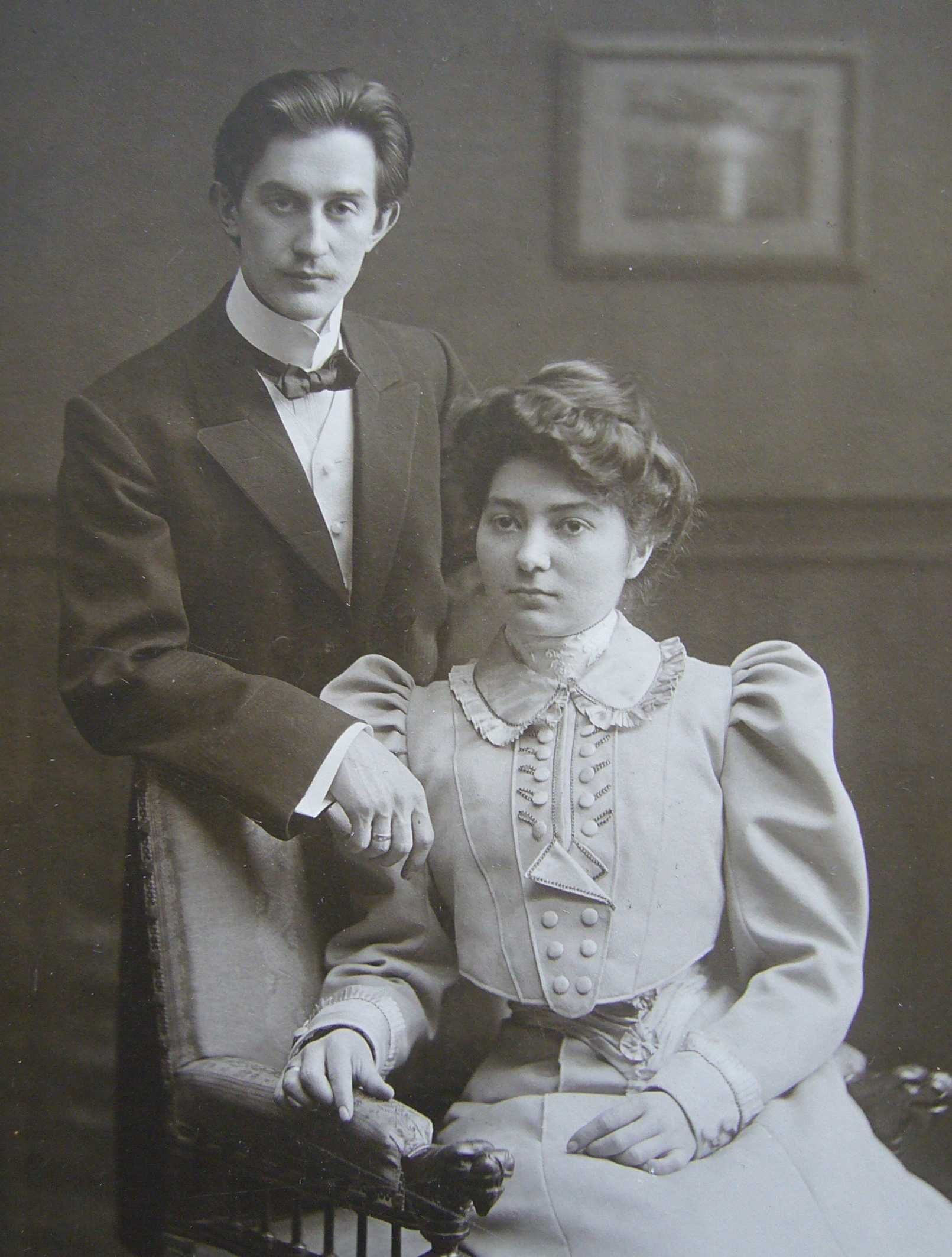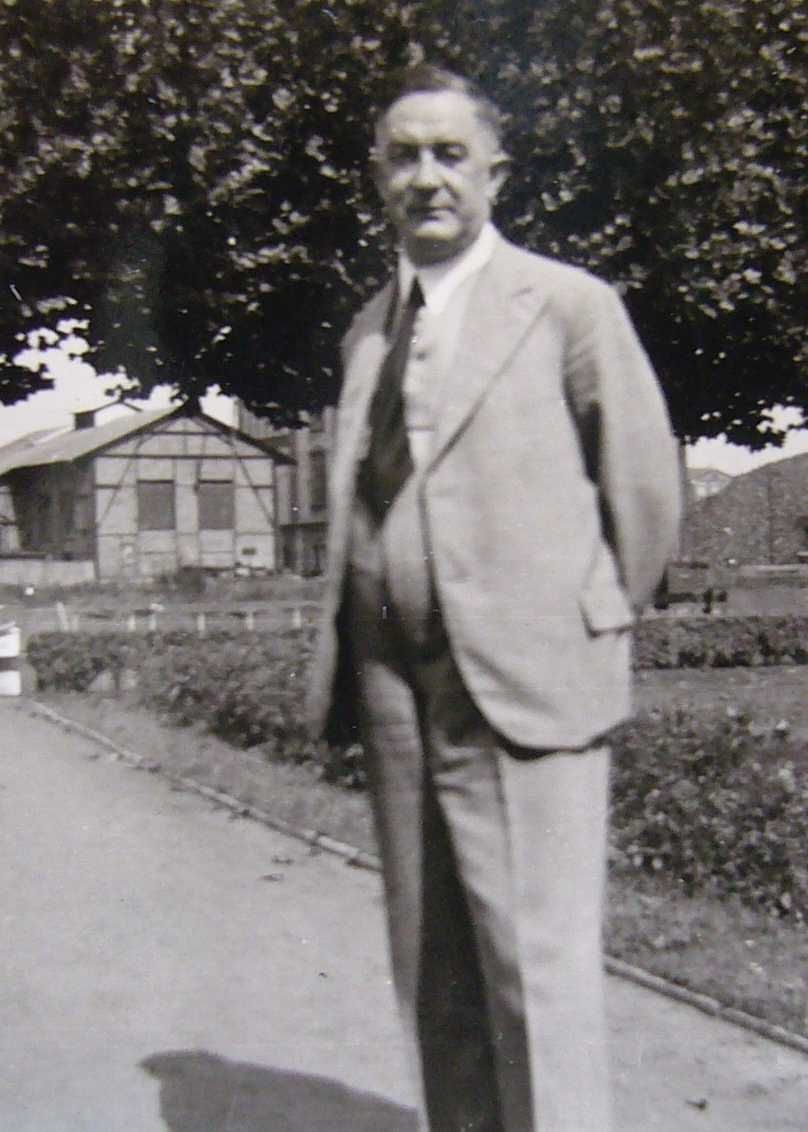Eduard Bornschein
Eduard Bornschein was born on 22 September 1883 in Braunschweig (Germany). Both his grandfather and father were kapellmeister by profession and so Eduard Bornschein received a musical education from an early age. He studied at the Sondershausen conservatory under Carl Schroeder and Kurt Fischer between 1900 and 1903.
Already during his study years Eduard Bornschein became conductor of the Hoftheater in Sondershausen. After his studies Eduard Bornschein lived an unsettled life for a decade. First he worked as a conductor at the theatres in Nuremberg and Lübeck. Then he moved to Klagenfurt and worked as a pianist for the Musikverein für Kärnten and also became choir master of the association. In 1911 Eduard Bornschein left Klagenfurt and worked as a piano teacher at the conservatory in Wroclaw. Only a few months later Eduard Bornschein moved again, now to Saarbrücken where he became head of the music society „Harmonie“. In Saarbrücken he finally found a place where he worked and lived in the long term.
Only a year later in 1912 Eduard Bornschein founded a conservatory in Saarbrücken. It ran under the name Bornschein Conservatory and was active until 1944. For all these years Eduard Bornschein acted as the director of the conservatory and developed it to a serious and distinguished music school. For example the renowned composer Erwin Schulhoff became piano teacher at the Bornschein conservatory in 1920. In 1922 Eduard Bornschein left Saarbrücken and moved to Weimar. The conservatory worked well and he still acted as its director, but there was no need to be on-site. In Weimar Eduard Bornschein bought the house „Ithaka“ and in the following years Eduard Bornschein focused on composing and created several song cycles, orchestral works and chamber music. He also began a cooperation with Erich Pabst who headed the Bergtheater Thale. Eduard Bornschein composed several compositions for plays at the theatre and also led the rehearsals. In 1928 Eduard Bornschein had to return to Saarbrücken because the financial conditions of the conservatory deteriorated. Over the next decade the crisis of the conservatory increased and in 1937 Eduard Bornschein finally made a motion to the city of Saarbrücken to take over his conservatory. In 1942 this transfer was executed. Eduard Bornschein stayed in Saarbrücken, but his house was object to an air raid in 1944 and completely destroyed. Therefore Eduard Bornschein moved to his house in Weimar. There he died on 4 February 1945.
The work catalogue of the composer Eduard Bornschein has a strong emphasis on songs. Beside more than 200 works for voice and piano he also composed 2 operas, stage music for several plays at the Bergtheater Thale, Variations on Bach‘s „Komm, süßer Tod“ for voice and string orchestra, „Liebe“ for soprano, baritone and chamber orchestra, „Arbeit“ for mens choir and wind orchestra, a Romantic Ouverture for orchestra, Eulenspiegeleien for chamber orchestra, a string quartet, six pieces for cello and piano, Bagatellen for violin and piano and Tanzrhythmen for piano.
In my possession are two autograph manuscripts by Eduard Bornschein: The "Eulenspiegeleien" for chamber orchestra and "4 Lieder für Stimme und Klavier einhändig".
1) 4 Lieder (1934)
The "4 Lieder für Stimme und Klavier einhändig" (4 songs for voice and piano one hand) were composed in 1934. All four songs set poems by Rainer Maria Rilke to music. The songs are 1. Die Liebende, 2. Ernste Stunde, 3. Herbst and 4. Die heiligen drei Könige.
Eduard Bornschein also wrote a small preface to the composition. In this he explains that he used dynamical markings sparingly because the heavy use of them would lead to a stiff performance. He claims that every musician has a heart and after serious studies of the work will give surely a well performance. Eduard Bornschein also wrote: "The performers are the co-helpers of the composer, not his slaves!"
The manuscript did not contain an explanation why the work is scored for piano one hand, but an obvious guess is that the work was composed for a one-handed pianist (which wasn't very uncommon after World War I). Maybe Eduard Bornschein composed the work for the most celebrated one-handed pianist of that time, Paul Wittgenstein. There is the famous dispute between Wittgenstein and Maurice Ravel whether a performer is allowed to make changes in a composition (what Wittgenstein did in the piano concerto by Ravel). And Ravel ended the dispute with the harsh words: "Performers are slaves" [to the composer]. That all happened in 1931-32. The Bornschein songs date from 1934 and maybe his words are somehow a reaction to this controversy. But that is just my personal guess.
2) Eulenspiegeleien (1927)
The Eulenspiegeleien is scored for chamber orchestra and has the subtitle "Humoreske". It was composed in 1927 while Eduard Bornschein stayed mainly in Weimar.I have no information that the work has ever been performed.

Eduard Bornschein with his wife Marianne
